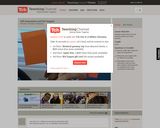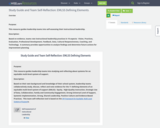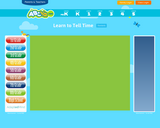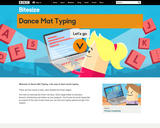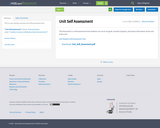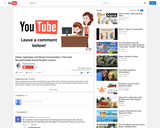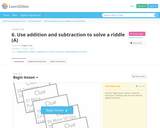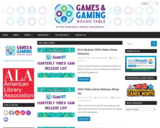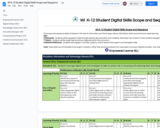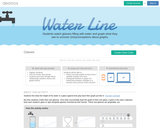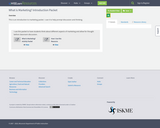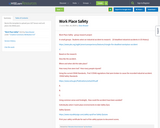Presenters:
Chris Baker (Public Library Consultant / Games & Learning Consultant, Library Services Team of the Wisconsin Dept. of Public Instruction), Jenna Gilles (Youth Services Associate, Chippewa Falls Public Library), & Jamie Hein (Library Director, Clintonville Public Library)
Description:
For years now, media usage data has shown that video games have led the entertainment industry by a massive margin, handily securing the crown as the most popular recreational medium on the planet. In the United States, 61% of Americans report playing video games for at least one hour every week; 29% of game players are 50 or older, and the average age of video gamers in the U.S. is 36, with a near-even split of 53% identifying as male, and 46% identifying as female.
The point? These impressive statistics represent an enormous opportunity for libraries in the U.S. to capitalize on – and illustrate that librarians ought to prioritize intentionally developing robust video game collections for their users to access; game collections can meaningfully help libraries reach a broader base of patrons, create exceptional new pathways for materials circulation, resonate with additional user identities, and help foster a 'community of practice' surrounding games in the library space. On top of this, video game collections help libraries showcase an earnest desire to remain relevant, accessible, and cutting-edge to their public.
In this first presentation in our series about video game collection development, you’ll hear from multiple librarians about the “why”, “what”, and “how” of video game selection and acquisition; we will highlight both philosophical and pragmatic best practices for developing video game collections – from advocacy data, to funding tips, to selection resources, to acquisition schedules, and more. A follow-up webinar in the series will focus on things like processing, borrowing rules, policy, and collection maintenance. You won’t want to miss these presentations!
Webinar date and time: October 30, 2024 11:00 AM EDT
This event was co-sponsored ALA's Games & Gaming Round Table: http://www.ala.org/rt/gamert
